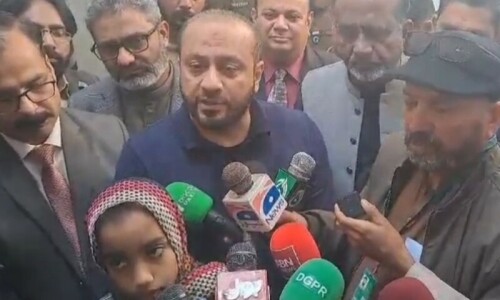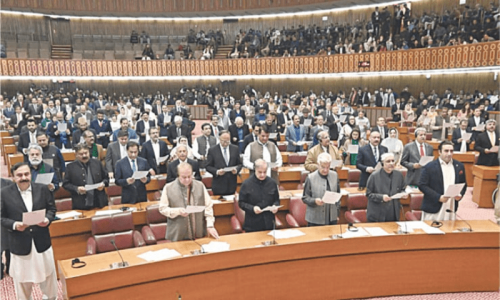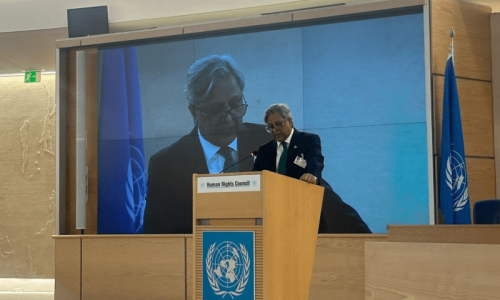ISLAMABAD: The International Commission of Jurists (ICJ) on Tuesday regretted that the Commission of Inquiry on Enforced Disappearances (COIED) had failed to address the issue of entrenched impunity, leaving the victims and their loved ones without any redress.
The COIED was constituted in March 2011 with a mandate to trace the whereabouts of missing persons and fix responsibility on individuals or organisations responsible for disappearances. The commission is headed by retired Justice Javed Iqbal.
A briefing paper on “Entrenching Impunity, Denying Redress: The Commission of Inquiry on Enforced Disappearances in Pakistan” regretted that although the COIED had traced the whereabouts of missing persons in a number of cases, there had been no apparent effort to fix responsibility for this heinous crime.
The briefing paper provided an assessment of the performance of the COIED since its formation and evaluated the legal framework under which the commission operates in the light of international law and standards.
“This commission has failed in holding even a single perpetrator of enforced disappearance responsible in its nine years,” said Ian Seiderman, the ICJ legal and policy director. “A commission that does not address impunity, nor facilitate justice for victims and their families, can certainly not be considered effective.”
Regrets commission has failed to hold even a single perpetrator of enforced disappearance responsible in nine years
The ICJ, comprising 60 eminent judges and lawyers from all regions of the world, promotes and protects human rights through the rule of law by using its unique legal expertise to develop and strengthen national and international justice systems. The body was established in 1952 and is active in five continents.
The ICJ regretted that hundreds, if not thousands, of people continued to be “missing” in Pakistan following their apparent arrest or abduction by or with complicity of the state. The UN Working Group on enforced disappearance has described a “culture of entrenched impunity” regarding the practice.
Despite COIED’s failure to meet the given objectives, its mandate was extended multiple times without any consultation with victims’ groups as to whether or under what conditions its operations should be continued. Its present mandate is set to expire on Sept 14.
“The failure of COIED also demonstrates a larger problem,” the ICJ said, adding that though ostensibly formed to provide a measure of public accountability, more often than not, the COIED had allegedly promoted impunity by diverting investigation of human rights violations and crimes through the criminal justice process into a parallel ad hoc mechanism vulnerable to political interference and manipulation.
Recent experiences in Pakistan, the South Asia region and around the world suggested that without substantial reform to the existing law and practice, continued use of the COIED would not succeed in providing effective remedies to the victims of human rights violations, the ICJ noted.
The ICJ recommended that the COIED mandate should not be extended beyond Sept 14 when its current tenure expires, and make public the final report of the commission. While the existing commission in mandate, form and practical function is beyond reform, parliament should take immediate steps towards the establishment of a new commission on enforced disappearances, it suggested.
The ICJ said the mandate of the new commission should fully cure the deficiencies of the existing COIED.
Published in Dawn, September 9th, 2020


















































